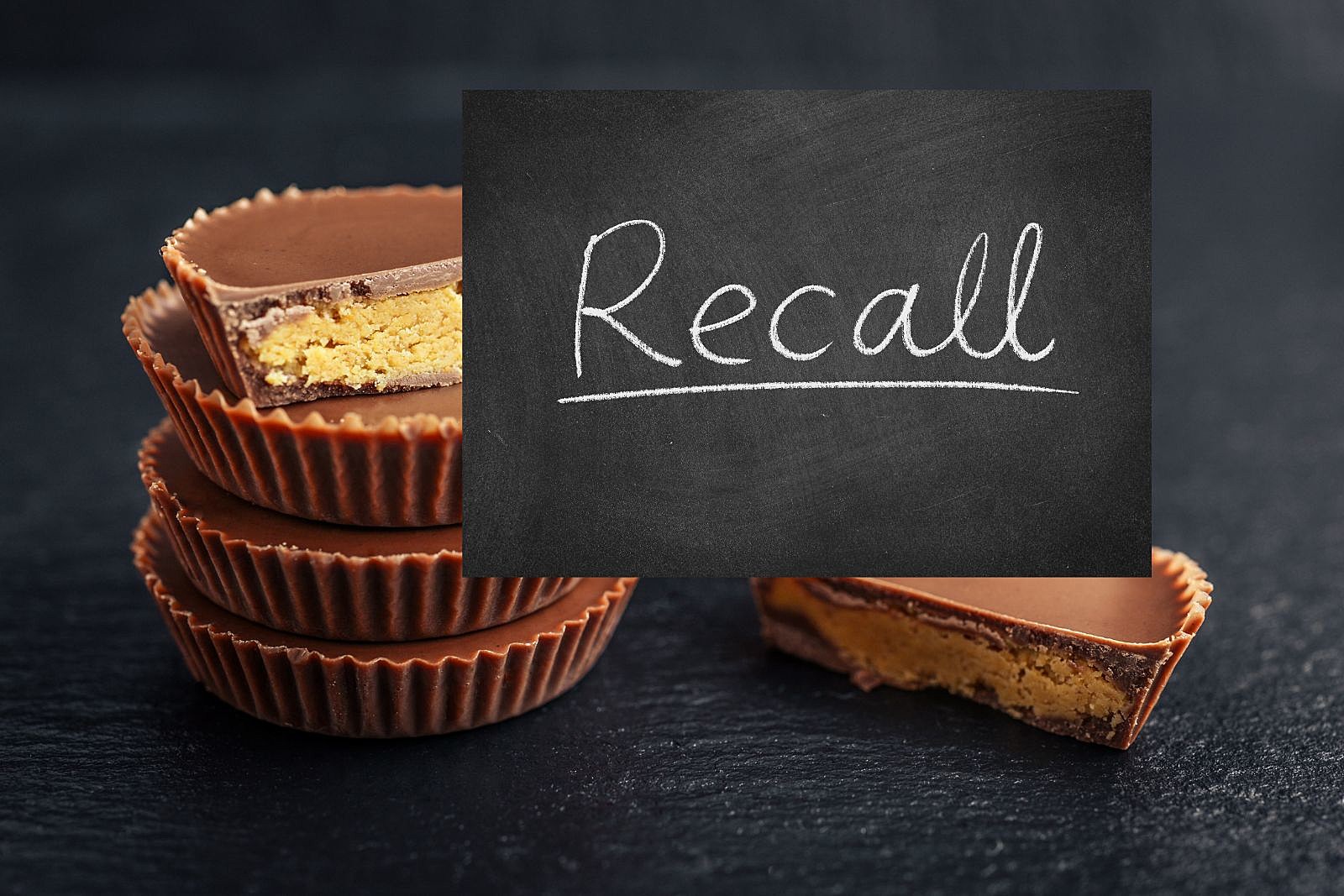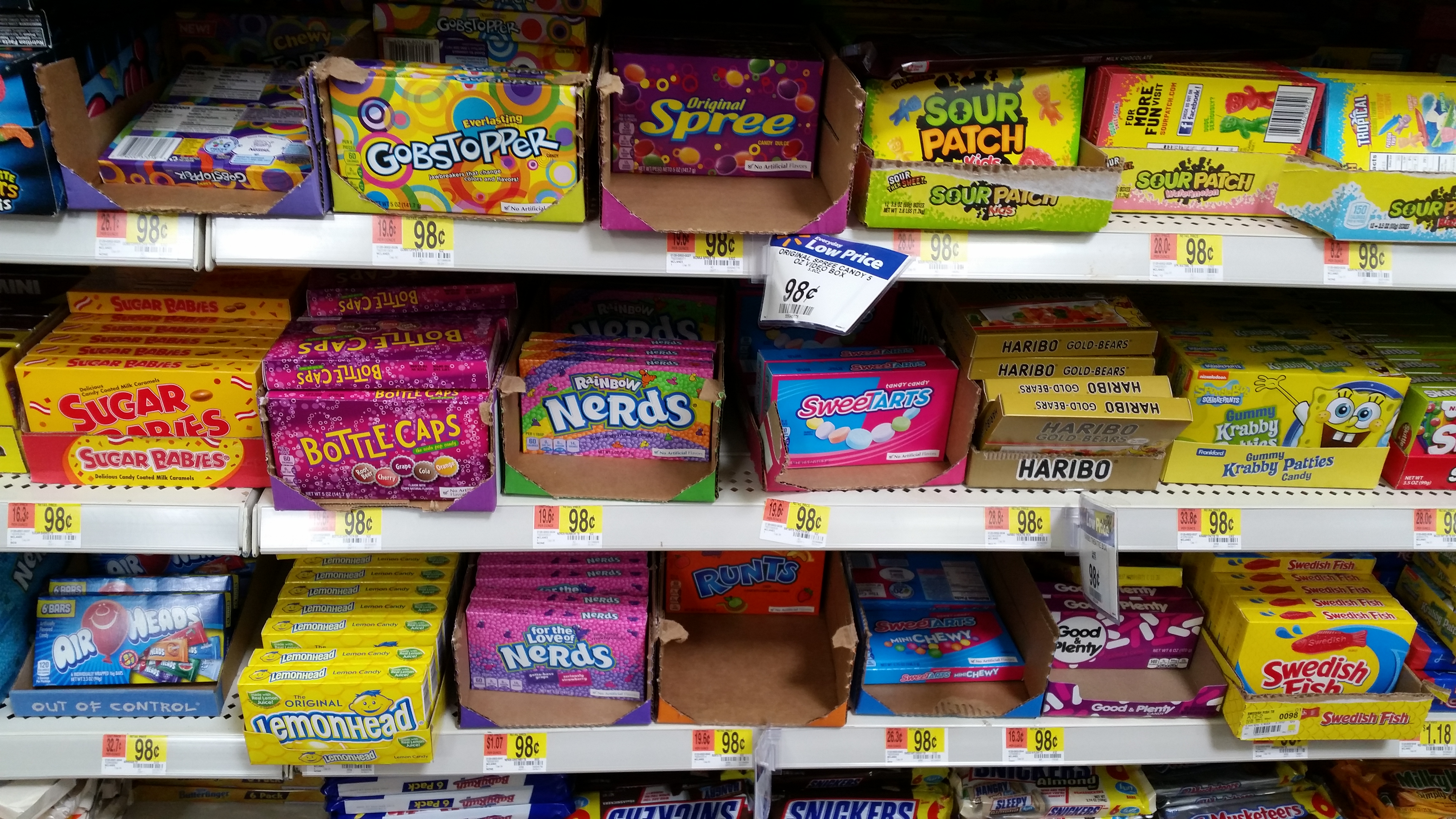Walmart Candy Recall History

Walmart, being a giant in the retail world, has had its fair share of candy recalls over the years. These recalls are usually triggered by potential safety concerns, like the presence of allergens or foreign objects in the candy.
Walmart Candy Recalls in the Past 5 Years
Here’s a timeline of some major candy recalls initiated by Walmart in the past five years.
- 2018: Walmart recalled a batch of Kinder Surprise Eggs due to the potential presence of Salmonella. This recall was initiated after several cases of Salmonella poisoning were linked to the consumption of these eggs. This recall was huge, and people were super bummed because Kinder Surprise Eggs are a classic treat!
- 2019: Walmart recalled several varieties of Halloween candy due to the presence of undeclared allergens. This recall was initiated after several consumers reported allergic reactions after consuming the candy. This recall was a bummer for Halloween, but it was important to make sure everyone was safe.
- 2020: Walmart recalled a batch of chocolate bars due to the presence of foreign objects. This recall was initiated after several consumers reported finding pieces of metal in their chocolate bars. This recall was super scary, but it showed how seriously Walmart takes product safety.
- 2021: Walmart recalled a batch of gummy candies due to the potential presence of undeclared allergens. This recall was initiated after several consumers reported allergic reactions after consuming the candy. This recall was a bummer for those who love gummy candies, but it was important to make sure everyone was safe.
- 2022: Walmart recalled a batch of hard candies due to the potential presence of foreign objects. This recall was initiated after several consumers reported finding pieces of plastic in their hard candies. This recall was a total buzzkill, but it showed that Walmart was committed to keeping its customers safe.
Walmart’s Recall Process
Walmart has a well-defined process for managing and communicating candy recalls to customers. When a recall is initiated, Walmart works closely with the manufacturer to identify the affected products and to determine the scope of the recall. They then use a variety of communication channels to inform customers about the recall, including:
- Website: Walmart posts information about recalls on its website, including the affected products, the reason for the recall, and instructions on how to return the product.
- Social Media: Walmart uses social media platforms like Facebook and Twitter to share information about recalls with its customers.
- Email: Walmart sends emails to customers who have registered their email addresses with the company to notify them about recalls.
- In-Store Signage: Walmart places signage in its stores to inform customers about recalls.
Impact of Candy Recalls on Walmart

Candy recalls can have a significant impact on Walmart’s business, affecting its financial performance, customer trust, and brand reputation. These recalls can lead to substantial financial losses, damage customer loyalty, and require Walmart to implement various strategies to mitigate the negative consequences.
Financial Implications of Candy Recalls
Candy recalls can result in significant financial losses for Walmart. These losses can arise from various factors, including:
- Product Removal and Disposal: Recalls require the immediate removal of affected candy products from store shelves and distribution centers. This process involves labor costs, transportation expenses, and potentially the disposal of unsold inventory, leading to significant financial losses.
- Refund and Compensation Costs: Walmart is obligated to provide refunds to customers who purchased recalled candy products. Additionally, the company may face legal claims or lawsuits from consumers who suffered harm due to consuming recalled products. These costs can be substantial and further impact Walmart’s bottom line.
- Damage to Brand Reputation: Candy recalls can damage Walmart’s brand reputation, leading to a decline in customer trust and sales. Consumers may perceive Walmart as a company that prioritizes profits over safety, resulting in a loss of customer loyalty and a negative impact on future sales.
- Loss of Sales and Revenue: Recalls can significantly impact sales and revenue. Consumers may avoid purchasing candy products from Walmart due to concerns about safety, leading to a decline in sales and revenue for the company. This impact can be particularly severe during peak seasons like Halloween and Easter, when candy sales are at their highest.
Impact on Customer Trust and Brand Reputation
Candy recalls can significantly impact customer trust and brand reputation, leading to negative consequences for Walmart. These consequences can include:
- Erosion of Customer Trust: Recalls can erode customer trust in Walmart’s ability to ensure the safety of its products. Consumers may perceive the company as negligent or irresponsible, leading to a decline in confidence and a reluctance to purchase products from Walmart in the future.
- Negative Publicity and Media Coverage: Candy recalls often attract significant media attention, leading to negative publicity and damage to Walmart’s brand image. This negative coverage can further erode customer trust and lead to a decline in sales and revenue.
- Social Media Backlash: Recalls can spark a backlash on social media, with consumers expressing their dissatisfaction and concerns about Walmart’s products. This negative sentiment can spread rapidly, further damaging the company’s reputation and impacting its brand image.
- Loss of Customer Loyalty: Recalls can lead to a loss of customer loyalty, as consumers may switch to alternative retailers who are perceived as more reliable and trustworthy. This loss of loyalty can have a long-term impact on Walmart’s sales and profitability.
Strategies to Mitigate the Impact of Recalls
Walmart employs various strategies to mitigate the negative impact of candy recalls, including:
- Swift and Transparent Communication: Walmart prioritizes swift and transparent communication with customers and stakeholders during recalls. The company promptly informs customers about the recall, provides detailed information about the affected products, and Artikels the steps customers should take. This transparency helps build trust and mitigate potential damage to the company’s reputation.
- Effective Product Traceability: Walmart implements robust product traceability systems to identify and track the origin and distribution of recalled candy products. This allows the company to quickly and efficiently remove affected products from circulation, minimizing the potential for harm to consumers and limiting the scope of the recall.
- Enhanced Quality Control Measures: Walmart continually reviews and enhances its quality control measures to prevent future recalls. This includes implementing stricter quality standards, conducting regular audits, and investing in advanced technologies to monitor product safety and prevent potential hazards.
- Customer Relationship Management: Walmart focuses on building strong customer relationships to mitigate the impact of recalls. The company engages with customers, addresses their concerns, and offers support to ensure their satisfaction. This proactive approach helps maintain customer loyalty and minimize the negative impact of recalls on brand reputation.
Consumer Safety and Regulatory Response: Walmart Recalls Candy

When it comes to candy recalls, consumer safety is the top priority. Regulatory agencies play a crucial role in ensuring that candy products are safe for consumption. These agencies are responsible for investigating potential safety hazards, issuing recalls, and working with manufacturers to address the issue.
Regulatory Agency Involvement
Regulatory agencies like the Food and Drug Administration (FDA) in the US are responsible for overseeing the safety of food products, including candy. These agencies have the power to investigate reports of potential safety hazards and issue recalls if necessary. They work closely with manufacturers to ensure that recalled products are removed from circulation and that consumers are informed about the recall.
Consumer Vigilance
While regulatory agencies play a vital role in protecting consumers, consumer vigilance is equally important. Consumers should be aware of potential safety hazards and report any concerns they have to the appropriate authorities. Being proactive and reporting issues promptly can help prevent further incidents and ensure the safety of others.
Candy Recall Examples, Walmart recalls candy
Here’s a table showcasing some examples of candy recalls and the actions taken:
| Candy Brand | Recall Date | Reason for Recall | Consumer Action |
|---|---|---|---|
| Snickers | 2023-04-15 | Possible presence of metal fragments | Return product for a full refund |
| Skittles | 2023-05-01 | Allergen mislabeling (undeclared peanuts) | Discard product or return for a refund |
| M&Ms | 2023-06-10 | Possible contamination with bacteria | Do not consume and discard product |
| Reese’s Pieces | 2023-07-20 | Packaging defects (potential choking hazard) | Contact manufacturer for a replacement |
Walmart recalls candy – It’s a bit of a bummer when your favorite candy gets recalled, but thankfully, Walmart is taking action to ensure everyone’s safety. It’s always good to know our elected officials are on top of things too, like tim walz minnesota , who’s always been a strong advocate for consumer protection.
So, while we may have to skip that candy for now, we can rest assured that Walmart and our leaders are working hard to keep us safe and well-stocked with delicious treats in the future.
It’s always a bit of a bummer when a beloved treat like candy gets recalled, but it’s important to stay informed and prioritize safety. While we’re on the topic of important news, have you seen the latest developments in news iran ?
It’s a fascinating region with a rich history and complex current events. Anyway, back to those candy recalls, I’m sure we’ll all be extra careful when choosing our next sweet treat!
